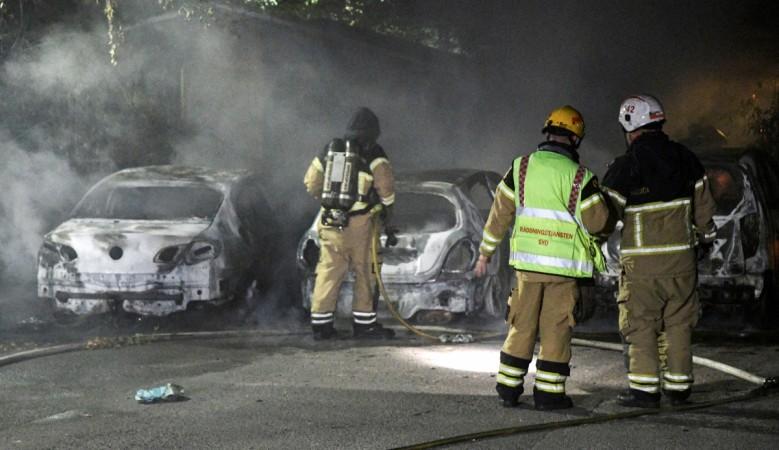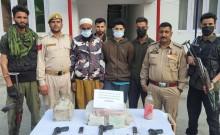
When one names Sweden, the first few things that come to mind are IKEA, the Ice Hotel, the stunning paintings and light installations at the Stockholm metro stations and the breathtaking Northern Lights, to name a few. It is also a country where just 1 percent trash ends up in landfills and the rest is recycled to provide heat and energy.
But the Scandinavian nation is battling new challenges now -- there are these 'no-go' zones in a country known for progressive values and a liberal society, violence against women is on the rise, gangs carry guns in public and sell drugs freely, and the government is grappling rising crime. In June, the Swedish police added eight more areas to its list of "no-go zones," which earlier had 15 areas.
The new areas added to the list were in the cities of Boras, Gothenburg, Landskrona, Malmö, Uppsala and Stockholm. Speaking about these areas, Linda Staaf, head of the national police NOA's intelligence department, told Swedish daily Dagens Nyheter that these areas are so notorious that they should have been put in the "especially vulnerable" category long ago. However, that couldn't be done, as authorities did not have enough information on them.
"In comparison to the last report we now have more knowledge and a better picture," she told DN, according to Russia Today. She also said that the force knows how to deal with crimes in these areas, but the only challenge seems to be the small number of personnel that the authorities are equipped with.
What are "no-go zones?"
"No-go zones" are those areas in Swedish cities that often face high rate of crime and poverty, and serious violence stemming from religious zealotry. The gangs in these areas are said to hold such power that most of the crimes go unreported as residents fear revenge.
The "no-go zones" are also known to have a large share of migrant and foreign-born population, which further adds on to the religious violence.
The locals in these areas recently spoke to RT and described the issues and crimes that they witness on a daily basis. About 5,000 criminals, who are a part of over 200 networks, operate in these areas, leading to a high rate of radicalization and Islamist extremism. This poses a serious threat to businessmen in the "no-go zones" as none of the insurance companies agrees to insure their businesses.
"One of the basic requirements for being a successful entrepreneur is safety, but the risk is quite big today. If your life is at risk, money does not help," Salam Kurda, a Kurdish shopkeeper and chairman of the corporate association in Husby, Stockholm, told the website.
"There has been quite a lot of shooting, very brutal mistreatment of our entrepreneurs, a lot of robberies, so the entrepreneurs have decided to change jobs or move to another area."
Speaking about what led to these challenges, Kurda blames the society that has failed to take care of the youth who then indulge in unlawful activities. He explained that instead of taking care of the younger generation and keeping them busy, adults in the society tend to use them for their business. "They sell drugs openly. They carry weapons," Kurda said.

No-go Zones and Migrants
Meanwhile, Danish TV editor and host Jonas Christensen believes that these issues also stem from the fact that these areas have a large migrant population that has a varied culture and finds it hard to fit in as they are often discriminated against and are unemployed.
".....in Germany, or in the country where I live, in Denmark, we also have no-go zones, in Copenhagen for example; and Sweden also, especially in places where they have taken in a lot of immigrants," he explained.
Meanwhile, Christensen's view on migrants finding it hard to fit in seems to have quite some believers and this issue of discrimination has often also been linked to a lot of terrorist activities in Europe, which has suffered numerous attacks such as in Barcelona, Paris, Stockholm, Berlin, Nice, Brussels, and more. When it comes to making migrants and immigrants feel that they belong, former Canadian intelligence analyst Phil Gurski believes that US has been more efficient in bringing them together with their citizens, compared with Europe.
"North America has done a much better job at integrating immigrants than governments in Europe. You just need to look at what has happened in some of the so-called (immigrant) ghettos in France, Belgium, and the United Kingdom," Politicsay quoted Gurski as saying.
Even though these areas in Sweden are referred to as "no-go zones" by many, including the media, the Swedish police have often said that these regions may be difficult to deal with, but not impossible to set right.















